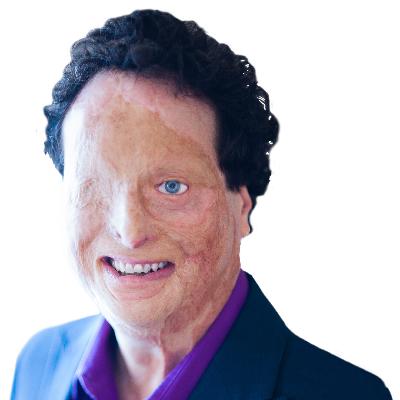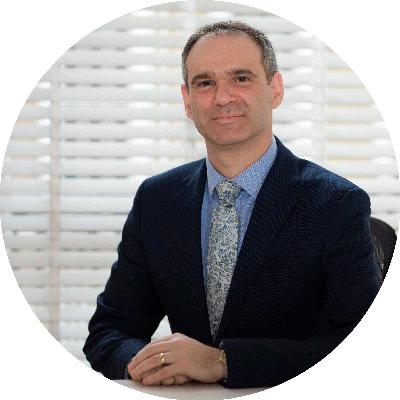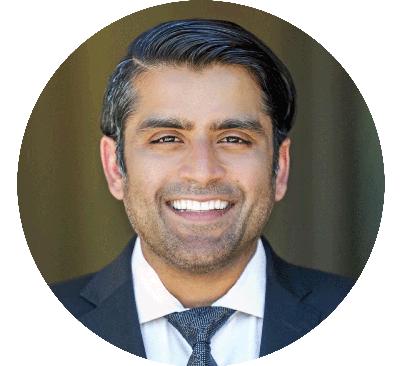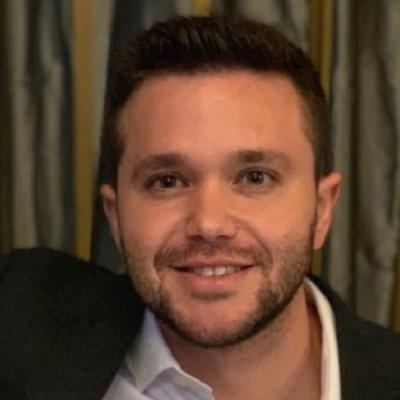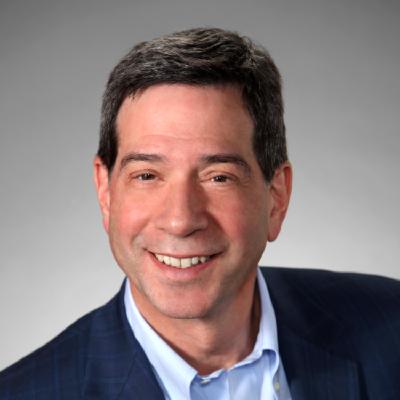Discover BroadEye: An Ophthalmology Podcast
BroadEye: An Ophthalmology Podcast

BroadEye: An Ophthalmology Podcast
Author: Bruno Fernandes and Shawn Maloney
Subscribed: 13Played: 67Subscribe
Share
© Copyright 2021 All rights reserved.
Description
Authentic conversations about the knowledge gaps in ophthalmology and eye care, with guests hailing from ophthalmology and optometry clinics, vision research labs, industry, private companies, and the low vision community.
86 Episodes
Reverse
In this episode, Dr. Bruno Fernandes acts as host alongside special guest co-host Dr. Carlos Quezada-Ruiz to welcome Dr. Rishi Singh, the newly appointed Chair of Ophthalmology at Harvard Medical School and Mass Eye and Ear, and Chair of the Integrated Department of Ophthalmology at Mass General Brigham.
Dr. Singh joins the podcast just 42 days into his new tenure to discuss the transition from the Cleveland Clinic to one of the world's most prestigious academic institutions.
Key topics in this episode include:
The "First 90 Days" Approach: Why listening is more important than prescribing solutions when taking on a new leadership role.
The Circuitous Career Path: How taking on "unsexy" jobs like coding and documentation can build the essential skills needed for executive leadership.
AI Realism: Dr. Singh shares his cautious optimism regarding Artificial Intelligence, discussing why it won't solve basic logistical issues instantly and the dangers of relying on the "black box" without human oversight.
Retina & Drug Development: A look at the logistical burdens of Wet AMD treatment, the complexities of clinical trials, and the potential (and current limitations) of gene therapy as a "Holy Grail."
Mentorship: Why being "uncomfortable" is the best way to grow as a young ophthalmologist.
About the Guest: Dr. Rishi Singh is a vitreoretinal surgeon and physician-scientist with over 300 peer-reviewed publications. He formerly served as Vice President and Chief Medical Officer at Cleveland Clinic Martin Hospitals.
In this week’s episode of the BroadEYE Podcast, hosts Dr. Shawn Maloney and Dr. Carlos Quezada-Ruiz sit down with Dr. Wiley Chambers, recently retired Deputy Director of the Division of Ophthalmology at the U.S. Food and Drug Administration (FDA). With over 36 years at the FDA, Dr. Chambers offers a rare insider’s perspective on regulatory science, ophthalmic drug development, and the evolution of clinical trial oversight.
This episode explores:
How ophthalmology regulation has changed over the decades
Common pitfalls in pre-IND meetings and what smart innovators do differently
Lessons learned from reviewing countless drug and biologic applications
The future of FDA guidance in areas like rare disease, gene therapy, and digital endpoints
Dr. Chambers also shares personal reflections on mentorship, scientific integrity, and his transition out of federal service after a distinguished career.
About Our Guest
Dr. Wiley Chambers served as a lead ophthalmic reviewer at the U.S. FDA from 1987 until his retirement in 2023. As Deputy Director of the Division of Ophthal
In this episode of the BroadEYE Podcast, we welcome inventor, researcher, and MacArthur Fellow Dr. Joshua Miele. Known for his pioneering work in accessible technology for blind users, Dr. Miele shares his journey from early advocacy to his role at Amazon’s Lab126, where he continues to develop tools that redefine independence and equity in the built and digital worlds.
Explore Dr. Joshua Miele’s work, projects, and writings on his personal site, MieleLab, which highlights his innovations in accessible design and disability inclusion. You can visit it here: www.mielelab.com
Joining as co-host is Victoria Nolan—a decorated Paralympian, accessibility advocate, and BroadEYE regular. With lived experience navigating vision loss, Victoria brings deep empathy and clarity to the discussion, drawing out the personal and systemic forces that shape accessibility work today.
Together, they explore:
The real meaning of inclusion, and why accessibility must be baked in—not bolted on.
Dr. Miele’s development of tactile maps, screen readers, and accessible media interfaces.
How institutions can move from compliance to genuine cultural transformation.
Dr. Miele also reflects on the resilience required to challenge ableist assumptions and the power of disabled leadership in tech innovation. His message is clear: access is not about charity—it’s about justice.
About Our Guests
Dr. Joshua Miele is a blind scientist, designer, and advocate for accessibility. Currently a Principal Accessibility Researcher at Amazon, he has developed technologies that empower blind and visually impaired people to navigate cities, classrooms, and digital spaces. He is a 2021 MacArthur “Genius Grant” recipient and a prominent voice for disability rights and design justice.
Want to learn more?
Pick up Dr. Miele’s powerful memoir, “Connecting the Dots: From the Blind Side”, now available on Amazon.
Victoria Nolan is a Canadian Paralympic rower, author, and passionate advocate for inclusion. Diagnosed with retinitis pigmentosa in her youth, she went on to compete internationally in rowing, including two Paralympic Games. Today, she is an influential public speaker and ambassador for breaking down barriers for people with vision loss.
In this episode of the BroadEYE Podcast, host Sean Maloney is joined by guest co-host Dr. Carlos Quezada-Ruiz for a deep and inspiring conversation with Dr. Margaret Chang, one of the leading figures in retina research and innovation.
From the start, Dr. Quezada-Ruiz sets the tone, describing Dr. Chang as not only a scientific leader but also a mentor, friend, and advocate for meaningful innovation. Their conversation ranges from early inspirations and pivotal career decisions to her ongoing efforts in bridging clinical research and real-world impact.
Dr. Chang shares candid thoughts on what drives her work at the intersection of patient care and technology, how she evaluates opportunities in translational research, and what keeps her motivated in the ever-evolving field of retina. Her reflections offer a rare glimpse into the mindset of a researcher who blends vision, rigor, and humility.
Whether you're a clinician, student, or someone curious about the future of ophthalmology, this episode offers both inspiration and actionable insight.
About Our Guest
Dr. Margaret Chang is an internationally recognized retina specialist and researcher. With a career spanning academia, clinical practice, and biotech innovation, she is known for her leadership in translating science into practice. A sought-after speaker and advisor, Dr. Chang continues to influence the field through both groundbreaking research and mentorship.
In this episode of the BroadEye Podcast, hosts Shawn Maloney and Dr. Bruno Fernandes welcome Prof. Michel Michaelides, one of the most active clinical researchers in ophthalmology today. Prof. Michaelides leads a large inherited retinal disease clinic—seeing 30–40 children and adults each week—and splits her time between patient care, advanced imaging research, and steering more than ten ongoing clinical trials.
Why This Matters
Inherited retinal diseases affect hundreds of thousands worldwide, and for most there is still no approved treatment. Over the past two years, we’ve seen multiple Phase 1/2 gene-therapy trials move into registrational studies, alongside novel antioxidant approaches and AI-driven biomarkers. Today’s conversation cuts through the jargon to give you a clear picture of where the field stands—and where it’s headed.
Key Takeaways
Beyond RPE65: While Luxturna paved the way, newer AAV-based therapies for X-linked RP (RPGR) and other targets are now in Phase 2 and Phase 3 trials, with early data showing promising safety and efficacy.
Imaging & Function: Prof. Michaelides is pioneering next-generation retinal imaging devices and novel functional assays to capture meaningful changes in vision—critical for shortening trial timelines.
Antioxidant Strategies: High-dose N-acetylcysteine trials are under way, offering a non-viral approach to slow photoreceptor degeneration across multiple genetic subtypes.
AI in Stratification: Machine-learning algorithms on retinal scans can help predict progression rate and identify the best candidates for specific therapies, improving both trial design and patient outcomes.
Balancing Dose & Safety: Finding the sweet spot between transgene expression and immune activation remains a core challenge—Prof. Michaelides shares lessons learned from dose-escalation cohorts.
Phase 3 & Beyond: With over a hundred patients enrolled in pivotal studies, we’re closing in on potential approvals—but long-term follow-up and real-world evidence will determine ultimate impact.
About the Guest
Prof. Michelle Michaelides is a clinician-scientist specializing in inherited retinal diseases. She leads dedicated adult and pediatric IRD clinics, oversees the development of advanced imaging and functional biomarkers, and serves as principal investigator on over ten clinical trials spanning gene therapies, antioxidant agents, and AI-guided stratification tools. Prof. Michaelides regularly lectures at international conferences and collaborates with industry and academic partners to accelerate the translation of research into real-world treatments.
In this latest episode of the BroadEye podcast, hosts Shawn Maloney and Dr. Bruno Fernandes sit down with Dr. Arshad M. Khanani, MD, MA, FASRS, a pioneer in vitreoretinal gene-therapy trials and Managing Partner at Sierra Eye Associates. Dr. Khanani shares front-line insights into how genetic medicines are reshaping treatment for inherited and degenerative retinal diseases, highlighting both the promise and the practical challenges of bringing one-time therapies to patients.
Why Gene Therapy Matters Today
Recent years have seen the first US approvals of in-vivo retinal gene therapies, beginning with voretigene neparvovec (Luxturna) for RPE65-mediated inherited retinal dystrophy in December 2017. These one-off treatments offer durable vision improvements where none existed before, but they also raise questions of long-term safety, vector delivery, and equitable access.
Dr. Khanani’s Journey
With over a decade leading surgical trials in sustained-delivery and viral-vector therapies, Dr. Khanani has overseen early human work on next-generation agents—including subretinal injections of AAV vectors and novel capsid designs. He describes lessons learned from Phase 1 safety studies through global registrational trials, emphasizing iterative “vector evolution” to boost efficacy and minimize inflammation.
Key Takeaways
Vector Optimization: Directed-evolution platforms are accelerating discovery of capsids that target photoreceptors more precisely, reducing off-target toxicity.
Durability vs. Dose: Striking the right balance between transgene expression and immune activation remains central—higher doses don’t always equal better outcomes.
Regulatory Pathways: While Luxturna set a precedent, streamlined FDA and EMA guidance on trial endpoints and real-world evidence will shape the next wave of approvals.
Cost & Access: Innovative payment models (e.g., outcomes-based installment plans) are emerging to address the multi-hundred-thousand-dollar price tags of these therapies.
About the Guest
Dr. Arshad M. Khanani, MD, MA, FASRS, is a vitreoretinal surgeon, researcher, and Managing Partner at Sierra Eye Associates in Reno, Nevada. He holds dual degrees in medicine and medical humanities from the University of Nevada, Reno, and is a fellow of the American Society of Retina Specialists. Dr. Khanani has authored over 100 peer-reviewed articles on retinal disease and served as principal investigator on more than 30 clinical trials of gene and cell therapies for inherited and age-related retinal disorders. He also lectures internationally on surgical innovation, vector design, and the economics of advanced ocular treatments.
Join hosts Dr. Shawn Maloney and Dr. Bruno Fernandes on the BroadEYE Podcast as they sit down with Marc Workman, CEO of the World Blind Union. In this engaging episode, Marc shares insights into the WBU’s mission to advocate for blind and partially sighted individuals globally, from influencing UN policies to empowering local organizations. Dive into discussions on accessibility, the transformative potential of AI, and the impact of the Marrakesh Treaty. Marc also opens up about his personal journey with retinitis pigmentosa and the challenges of global travel as a blind advocate. A must-listen for anyone interested in disability advocacy and inclusive technology!
In this episode of the BroadEYE Podcast, hosts Shawn Maloney and Dr. Bruno Fernandez dive into a fascinating discussion with Dr. Peter Campochiaro, a clinician-scientist at Johns Hopkins’ Wilmer Eye Institute, about the potential of N-acetylcysteine (NAC) as a treatment for retinitis pigmentosa (RP).
Dr. Campochiaro shares how his research journey began with unexpected findings in mouse models, revealing how excess oxygen in the retina—caused by the loss of rod photoreceptors in RP—leads to oxidative stress that damages surviving cone cells. This discovery paved the way for the NAC Attack clinical trial, a phase 3 study exploring whether NAC, a potent antioxidant, can slow cone degeneration and preserve vision in RP patients.
The conversation covers the science behind NAC, its safety profile, and why it was chosen over other antioxidants like glutathione or CoQ10. Shawn, who lives with late-stage RP, brings a personal perspective, while Bruno, an ophthalmologist, digs into the broader implications for retinal diseases. Dr. Campochiaro also addresses practical challenges, like NAC’s over-the-counter availability versus its regulated use, and cautions against self-medication without medical supervision.
The episode offers hope for RP patients while emphasizing the importance of awaiting trial results, expected in a couple of years, to confirm NAC’s efficacy and long-term safety.
In this episode, we sit down with Angela Bonfanti, the first female CEO and President of the Canadian National Institute for the Blind (CNIB). Angela shares her personal and professional journey, the challenges and opportunities of leading a 106-year-old organization, and her vision for improving accessibility and inclusion for individuals with vision loss in Canada.
About the Guest
Angela Bonfanti, the CEO and President of CNIB, is a trailblazer in the accessibility and inclusion space. With over 13 years of dedicated service at CNIB in various leadership roles, Angela became the organization’s leader in 2023, marking her 13th anniversary with the institute. She brings a deeply personal connection to her work, having grown up witnessing her father's journey with vision loss due to Retinitis Pigmentosa. Angela's leadership is defined by her commitment to systemic change, grassroots advocacy, and empowering individuals with vision loss through innovative programs and community-driven solutions.
About the CNIB
The Canadian National Institute for the Blind (CNIB) is Canada’s leading organization dedicated to empowering people impacted by blindness and vision loss. Established in 1918, CNIB supports individuals across the country with programs focusing on education, employment, accessibility, and advocacy. From guide dog training to groundbreaking virtual services, CNIB aims to create a world without barriers for people living with vision loss. Under Angela Bonfanti's leadership, the CNIB continues to advance its mission of inclusivity and accessibility through collaboration and innovative strategies.
Dr. Carlos Quezada-Ruiz is a Vitreoretinal Surgeon and Assistant Professor of Ophthalmology at the Instituto de Oftalmologia Fundación Conde de Valenciana’s Retina Department in Mexico City. He also serves as the Senior Vice President of Clinical Research and Development and Therapeutic Area Head (Ophthalmology) at 4DMT, leading early- and late-stage clinical development teams focused on treating neovascular age-related macular degeneration (nAMD), diabetic macular edema (DME), and geographic atrophy (GA).
In addition to his active clinical practice, Dr. Quezada-Ruiz has spent the past decade as a Drug Developer, beginning at Genentech–Roche. There, he worked on the Ophthalmology management team as Group Medical Director of Clinical Science (Product Development). During his tenure, he led the design, execution, and analysis of U.S. and global registrational trials for multiple retinal diseases, including the nAMD global clinical development program for VABYSMO, resulting in U.S. and worldwide approvals. He also led the global clinical science team for SUSVIMO, supporting its initial global filing, FDA approval, and launch in nAMD; successfully navigated the U.S. voluntary recall and commercial relaunch; and oversaw the phase 3 DR/DME registrational program through execution, readout, and filing with the FDA in early 2024. Previously, Dr. Quezada-Ruiz led Medical Affairs efforts for the U.S. launch of Lucentis Prefilled Syringe (PFS) and the myopic choroidal neovascularization indication for LUCENTIS.
Furthermore, Dr. Quezada-Ruiz contributed to diversity and inclusion strategies in the Ophthalmology Franchise—such as the AAO MOM program—and advanced personalized healthcare in retina at Genentech by helping design and develop predictive models that use machine learning and large language models to support both drug development and clinical practice.
Dr. Quezada-Ruiz is a Fellow of the American Society of Retina Specialists, with over 13 years of clinical practice and research in vitreoretinal diseases and surgery. He earned his M.D. from Universidad Autónoma de Coahuila in his hometown of Torreón, Mexico. He completed fellowships in Vitreoretinal Surgery, Ocular Pathology Research, and Vitreoretinal Surgery Research at Universidad Nacional Autónoma de México, McGill University, and the California Retina Research Foundation, respectively. In 2023, he completed an Executive Education program (CIBE) at Columbia Business School.
His accolades include the 2023 Roche Award of Excellence in recognition of outstanding contributions to Roche Pharmaceuticals (“Vabysmo and Beyond”), Genentech’s 2023 Medical Excellence Award, the 2019 American Society of Retina Specialists Senior Honor Award, the 2016 ASRS Honor Award, the 2013 Gillingham Pan-American Fellowship by the Pan-American Association of Ophthalmology and The Retina Research Foundation of Houston, Texas, and the 2013 Leonard Ellen Ocular Pathology Award by the Royal Victoria Hospital Foundation.
On a personal note, Dr. Quezada-Ruiz is married to Cecy—formerly a marketing specialist at The Coca-Cola Company—and they have three children and a white Labrador, Mia, who is blind from retinal dystrophy. He is also a retired martial artist, philosopher, and health enthusiast.
About 4DMT
4DMT is a clinical-stage genetic medicines company focused on harnessing the full potential of genetic therapies for large market diseases, particularly in ophthalmology (wet AMD and DME) and pulmonology (cystic fibrosis lung disease).
Therapeutic Vector Evolution (TVE): 4DMT’s proprietary vector platform leverages the Nobel Prize–winning technology of directed evolution to create customized viral vectors. This approach propels a diverse product pipeline aimed at revolutionizing medicine with potentially curative therapies for millions of patients.
In this episode, we sit down with Jason Menzo, CEO of the Foundation Fighting Blindness, to discuss his unique journey from the pharmaceutical industry to leading one of the world’s most impactful organizations in eye health. Jason shares insights on his career transition into the nonprofit sector and his commitment to advancing the Foundation’s mission. We explore groundbreaking initiatives like My Retina Tracker, a resource bridging patients to clinical trials, and dive into the Foundation’s bold vision for future treatments, including the potential of eye transplants. Plus, hear how the Foundation is fueling innovation by investing in promising small eye care companies and funding research to combat inherited retinal diseases.
In the exciting launch of Season 2 of the Broad Eye podcast, we explore the latest developments in eye care and share our personal journeys over the past couple of years. This season will focus on highlighting inspiring individuals and organizations that are making significant strides in ophthalmology, aiming to bridge knowledge gaps and enhance access to eye health.
Bruno discusses his innovative project, "Eye Station," a free eye screening initiative located in a busy mall in Brazil, designed to provide easier access to eye care screenings and education for the public. This social project aims to bridge the gap in eye care accessibility that the public sector struggles to meet, allowing individuals to receive essential screenings without the barriers of cost or inconvenience.
Meanwhile, Shawn shares his involvement with several non-profit organizations, including the Canadian National Institute for the Blind (CNIB) and the Foundation Fighting Blindness (FFB), as well as his exciting new book project co-authored with Paralympic athlete and educator Victoria Nolan. This book aims to serve as a comprehensive resource for individuals newly diagnosed with vision loss, filling a crucial gap in available information.
Together, we reflect on our experiences and the challenges we've faced, setting the stage for a season filled with compelling stories and expert insights that underscore the transformative power of accessible eye health.
In this episode our guest is Dagmar Jamieson, a mentor and life coach at CNIB. We discuss the challenges in everyday life as a visually impaired person, how that affects our social skills, are there any professional limitations and how does Dagmar cope with all those challenges.
Ariel Cao is the president/CEO and co-founder of Injectsense. We talked about the current challenges in the management of patients with glaucoma, still one of the major causes of blindness worldwide. Cao and his team developed an implantable intraocular device that can continuously monitor intraocular pressure. By providing accurate, clinically actionable information, physicians will be able to individualize therapeutic interventions for each patient, properly assess the effectiveness of glaucoma therapy, and ultimately avoid blindness.
In this episode, we review differences in regulatory requirements for branded and generic therapeutic agents, and how these differences can manifest in eye care. Dr. Andrew Meagher sheds light on the subject using IOP-lowering glaucoma drops as an example.
Drawing on his experience in the clinic and keen attention to scientific detail, Dr. Meagher shares knowledge as Associate Professor at the Salus University, School of Optometry.
In this episode, we had the chance to talk with Dr. Farris about his charitable work in eye care both in the United States and internationally. For the past 20 years, he has led a team annually from Dean McGee Eye Institute to develop academic exchange and work with the local residency-training programs in China. He has done the same in Africa for the past 11 years.
Dr. Farris is the 2021 recipient of the Outstanding Humanitarian Service Award by the American Academy of Ophthalmology and Professor Emeritus of Ophthalmology at the University of Oklahoma and Dean McGee Eye Institute.
Dr. Duker is an accomplished ophthalmologist, that is now the Chief Operating Officer of EyePoint Pharma, a biotech company that develops sustained-release medications to treat serious ocular disorders. We talked about his career path and what motivated him to move from a clinical to an executive position. For the 21 years before he took the COO position at EyePoint, Dr. Duker was the Director of the New England Eye Center (NEEC) and Professor and Chair of the Department of Ophthalmology at Tufts Medical Center, Tufts University School of Medicine in Boston, Massachusetts. Dr. Duker received his medical degree from Jefferson Medical College. He completed a residency and fellowship in vitreoretinal diseases and ocular oncology at the Wills Eye Hospital.
What might come as a surprise to most people is that the visually impaired can draw!
Dr. Kennedy is a Professor of Psychology at the University of Toronto and is especially interested in the theory of pictures drawn by people who are blind. The key idea is that lines in outline drawings mean the same thing to the sighted and people who are blind -- edges of surfaces, such as profiles of people and corners of cubes. These shapes are understood via touch as well as vision. We also talked about how drawing kits are now made available free to all children who are blind in the US and his book on the topic: Drawing and the Blind: Pictures to Touch.
In this episode, we learned how Orbis International is much more than a flying hospital. Using the latest technologies such as AI and telemedicine, Dr. Hunter Cherwek is leading a global initiative to train ophthalmologists and help eliminate avoidable blindness in low-resource communities.
Christian is the Head of Digital Therapeutics and Director of Business Development at Twenty Twenty Therapeutics, a joint venture between Verily Life Sciences, an Alphabet company, and Santen, a leading Japanese pharmaceutical company. We talked about the company’s vision to eliminate preventable blindness with technology that empowers patients to care for their own vision between doctors’ visits.




